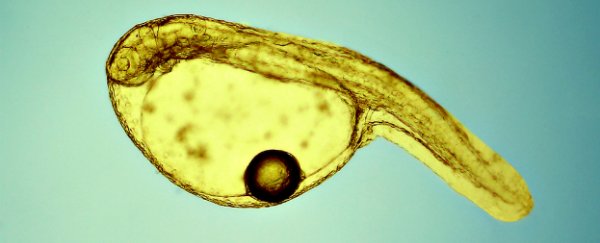Around the world, seafood is becoming an increasingly popular menu item - not only is it delicious, but it's also good for us and is often though of as more sustainable than other protein sources. And so we eat it, a lot. But fish breeders are struggling to find a way to sustainably keep up with this demand.
Right now in Australia, two-thirds of the barramundi - a popular white-fleshed fish, also known as the Asian seabass - we eat is imported because breeders simply can't grow the fish quickly enough.
But now scientists from James Cook University (JCU) in northern Queensland have developed a test that could help speed up selective breeding and help make the species grow more quickly.
It's long been known that some fish are better at producing fast-growing babies - and in fish farms these are the individuals that breeders want to keep breeding, in the hopes of eventually make the whole process from pond to plate faster.
But at the moment, they have to wait 18 months before they can identify which babies will grow the quickest, and therefore which parents are worth breeding again.
Now the team from JCU have worked out how to quickly identify the cellular processes that indicates fast growth when fish are still in their larval form.
"We can now take fish larvae at 18 days old and tell the farmer which barramundi offspring from which parents will grow the quickest," said Jose Domingos from JCU's Centre for Tropical Sustainable Fisheries and Aquaculture in Townsville in a press release.
In order to do this, the researchers examine the ratio of RNA (which is an indicator of cell growth) and DNA in the baby barramundias.
"We have shown that offspring with the highest RNA:DNA ratio will have the fastest long term growth to harvest size," said Domingos. ABC have a great video with more information on the breakthrough.
While there are always ethical concerns associated with selective breeding, it's something humans have been doing with food crops and farmed animals for years - and as the demand for fish increases, the team explains that it's the only way we can sustainably keep up.
There's also potential for the new tool to be tweaked and used across other species, in order to help breeders around the world meet growing food demands.
Interested in aquaculture? JCU offers a Bachelor of Science (Aquaculture Science and Technology), and also an online Graduate Certificate for those who are already working in the industry.
Source: James Cook University, ABC
